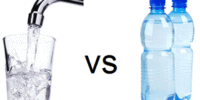How To Practice Relaxation And Breathing Techniques For Immediate Stress Relief In Depression
Depression, a common mental health disorder, is often exacerbated by stress. The connection between these two elements is integral to understanding the effective management of depressive symptoms.
This article explores the science underpinning relaxation and breathing techniques, offering practical guidance on their implementation for immediate stress relief. The utilization of mindfulness, as a complementary strategy, is also discussed.
In addition, the discussion extends to lifestyle alterations that can further support stress reduction in the context of depression. For some, professional assistance may be necessary and this option is reviewed.
Lastly, the importance of maintaining progress is emphasized. The benefits of these techniques are not just immediate, but can also contribute to long-term wellbeing, making them a valuable tool in the management of depression.
Understand the Connection between Stress and Depression
Investigating the intricate relationship between stress and depression elucidates the potential for immediate stress relief as a viable strategy in managing depressive symptoms.
The interconnectedness of these two conditions is well documented within the realm of psychological and neurobiological studies.
Chronic stress, characterized by continuous psychological pressure and tension, often acts as a catalyst for depressive disorders. This relationship primarily stems from the detrimental impacts of stress on the neuroendocrine system, which further influences mood regulation.
Hence, alleviating stress can potentially reduce the severity of depression.
Techniques such as relaxation and controlled breathing exercises have shown efficacy in alleviating stress.
Therefore, focusing on such strategies could provide short-term relief from depressive symptoms while also contributing to long-term mental wellness.
The Science Behind Relaxation and Breathing Techniques
Exploring the realm of science uncovers the profound effects of mindful respiration and calming exercises on the human brain, offering a lifeline to those grappling with mental health challenges.
Studies illustrate that such techniques can aid in combating stress and depression by modifying brain wave patterns, hormone production, and overall mental state.
-
Stimulating the Parasympathetic Nervous System: These techniques can stimulate the body’s parasympathetic nervous system, promoting a state of calm.
-
Brain Wave Modulation: Relaxation and breathing exercises can help to regulate brain wave patterns, promoting a state of relaxation and reducing stress.
-
Hormonal Balance: These practices can reduce the production of stress hormones like cortisol, while increasing the production of mood-enhancing hormones like serotonin.
-
Mental State Improvement: Regular practice can improve overall mental state, reducing symptoms of depression and anxiety.
Guided Relaxation Techniques
The discourse on guided relaxation techniques necessitates an exploration of two key strategies:
- Progressive Muscle Relaxation (PMR)
- Guided Imagery.
PMR, a methodical technique involving the tension and relaxation of individual muscle groups, offers a practical approach to alleviating physical tension and stress.
Concurrently, the practice of Guided Imagery, a cognitive process that prompts the mind to conjure calming images and scenarios, has shown potential for reducing psychological stress, thus complementing the physical emphasis of PMR.
Progressive Muscle Relaxation
Progressive Muscle Relaxation, a scientifically backed method for combating stress, involves deliberate tension and relaxation of different muscle groups to foster a state of deep bodily and mental calm.
This technique commences with the tensing of a specific muscle group while inhaling, followed by a release of the tension during exhalation.
This process is sequentially repeated across various muscle groups.
Studies suggest that this technique can aid in reducing symptoms of depression by decreasing cortisol levels, the hormone responsible for stress response.
Furthermore, it assists in promoting better sleep, enhancing concentration, and improving overall mental health.
As an accessible and cost-effective therapeutic strategy, Progressive Muscle Relaxation can be implemented in daily routines to combat stress and enhance well-being in individuals suffering from depression.
Guided Imagery
Guided Imagery, another effective therapeutic strategy, harnesses the power of mental visualization to cultivate a sense of tranquility and well-being.
This technique involves the systematic engagement of all five senses to evoke calmness through vivid mental images.
The process begins by finding a quiet, comfortable space, followed by slow, deep breathing.
Once a relaxed state is achieved, the individual is guided to visualize a serene place or situation.
This could be a beautiful beach, a lush forest, or even a personal memory that elicits feelings of peace and happiness.
The goal is to fully immerse oneself in this scene, engaging all senses to enhance the experience.
Research suggests that Guided Imagery can significantly reduce symptoms of stress and depression, providing immediate relief.
Breathing Techniques for Stress Relief
Implementing effective breathing techniques can serve as a potent tool for immediate stress relief. Practices such as deep breathing, box breathing, and diaphragmatic breathing are known to reduce symptoms of depression. These techniques facilitate the control of the body’s involuntary functions, aiding in the mitigation of depressive symptoms and inducing a state of calmness.
The practice of deep breathing involves:
- Inhaling slowly and deeply through the nose, allowing the chest and lower belly to rise as the lungs fill with air.
- Holding the breath for a few seconds before exhaling slowly, ensuring the out-breath is longer than the in-breath.
- Repeating this process for several minutes, cultivating a sense of relaxation and tranquility.
These techniques can offer immediate relief from stress, promoting mental clarity and emotional stability.
Incorporating Mindfulness into Your Routine
Incorporating mindfulness into one’s daily routine can serve as a transformative tool for enhancing emotional resilience, fostering mental clarity, and promoting overall well-being.
By focusing on the present, mindfulness encourages the recognition and acceptance of current feelings, thoughts, and sensations without judgement. This practice can diminish the stress associated with depression, as it encourages the individual to detach from harmful thought patterns.
Mindfulness can be practiced through various activities such as meditation, yoga, or simply maintaining an attentive awareness throughout the day.
Research suggests that consistent mindfulness practice can lead to structural changes in the brain, enhancing its ability to manage stress and anxiety.
Hence, incorporating mindfulness into daily routines can provide immediate relief from stress, supporting mental health and improving quality of life.
Additional Lifestyle Adjustments
Adjustments in lifestyle, such as diet, exercise, and sleep patterns, can significantly influence mental health and overall well-being, offering a potent ally in the fight against emotional disturbances and cognitive dysfunction.
A balanced diet, rich in nutrients, can help to stabilize mood swings, while regular physical activity releases endorphins, the body’s natural feel-good chemicals.
Adequate sleep, furthermore, is essential for mental health as it allows the brain to rest and rejuvenate.
Regular engagement in leisure activities that bring joy and help in relaxation can also ameliorate depressive symptoms.
Incorporating these changes alongside relaxation and breathing techniques may foster a more profound impact on stress relief.
It is important, however, to consult with healthcare providers before initiating any significant lifestyle adjustments.
Seeking Professional Help
When symptoms of emotional disturbances persist despite personal efforts to manage them, it may become necessary to seek the guidance of a mental health professional. Such professionals are equipped with the knowledge and skills to diagnose and treat a range of mental health disorders, including depression.
These experts can provide a variety of therapeutic treatments, such as:
-
Cognitive Behavioral Therapy (CBT):
- This approach involves identifying negative thoughts and behaviors and replacing them with positive ones.
- It encourages individuals to challenge their own beliefs and change destructive patterns of behavior.
-
Medication:
- Antidepressants can be prescribed to help manage symptoms of depression.
- The use of medication should be under the supervision of a healthcare professional, who can monitor side effects and adjust dosages as necessary.
Maintaining Your Progress
Maintaining progress in dealing with depression necessitates the establishment of consistent routines and regular consultations with mental health professionals.
To facilitate recovery and prevent relapse, the creation of a structured daily routine is a pivotal step that fosters a sense of control and normalcy.
Concurrently, routine check-ins with mental health professionals provide an avenue for monitoring progress, adjusting treatment plans, and addressing any emerging mental health concerns promptly.
Creating a Routine
Establishing a consistent routine can play a significant role in practicing relaxation and breathing techniques, thereby alleviating stress associated with depression. A routine creates a structured environment that can help individuals to be more disciplined and focused on their stress relief regimen.
Practitioners are encouraged to designate specific times during the day for these exercises, which should ideally be quiet and devoid of distractions. The duration of each session may vary depending on individual preferences and circumstances.
Here is a sample routine:
| Time of Day | Activity |
|---|---|
| Morning | Deep Breathing Exercises |
| Afternoon | Progressive Muscle Relaxation |
| Evening | Guided Imagery |
Adherence to this routine can potentially facilitate more efficient stress management and contribute to overall mental well-being.
Regular Check-ins with Mental Health Professionals
Regular consultation with mental health professionals is an integral component of managing and overcoming mental health challenges. These professionals can guide individuals in implementing relaxation and breathing techniques effectively, thereby facilitating immediate stress relief in the instance of depression. Regular check-ins allow for the early detection and management of any escalating symptoms or complications, thus promoting the proper and timely application of therapeutic interventions.
Through such consultations, individuals can learn how to regulate their breathing patterns, promote muscle relaxation, and cultivate a positive mental state. The ongoing support from these professionals also provides a safe space to express concerns and fears, which in turn can lead to a better understanding of the condition and more effective strategies for stress management.
Frequently Asked Questions
What foods can help reduce stress and alleviate symptoms of depression?
Consumption of nutrient-rich foods such as omega-3 fatty acids found in fish, and antioxidants found in fruits and vegetables, can potentially alleviate stress and lessen symptoms of depression, according to various studies.
How does regular physical exercise contribute to stress management and alleviation of depression symptoms?
Regular physical exercise enhances endorphin production, promoting feelings of well-being. It also improves sleep and self-confidence, crucial for stress management and depression alleviation. Thus, exercise serves as a natural and effective treatment for these conditions.
Are there any recommended herbal supplements or vitamins that can help manage stress and depression?
Research suggests certain herbal supplements and vitamins, such as St. John’s Wort, Omega-3 fatty acids, and B vitamins, may aid in managing stress and depression. However, consultation with a healthcare professional is recommended before intake.
Can music or art therapy be effective in managing stress and depression?
Indeed, music and art therapy can be effective in managing stress and depression. Studies suggest these therapies may reduce symptoms by promoting relaxation, improving mood, and providing an outlet for expression of emotions.
What role do support groups play in managing stress and depression, and how do I find one?
Support groups serve a significant role in managing stress and depression by fostering a sense of community and shared experiences. Local mental health clinics or online platforms can provide information on available support groups.









